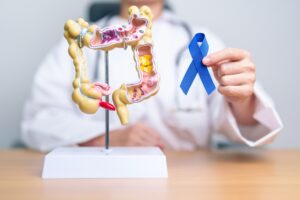How to Achieve Healthy, Regular Bowel Movements
There’s a wide range of what’s considered normal, but “healthy” generally refers to consistency, ease, and frequency.
Talking about bowel movements can feel a bit awkward, but it’s a vital part of your overall health. Regularity is a sign that your digestive system is functioning well, yet many people struggle with inconsistent or uncomfortable bowel habits. The good news is that you have a great deal of control over this aspect of your health through simple, everyday habits.
There’s a wide range of what’s considered normal, but “healthy” generally refers to consistency, ease, and frequency. A healthy bowel movement is typically soft yet formed (like a sausage or snake) and easy to pass without straining. The color is usually a shade of brown, though this can vary depending on what you eat.
Frequency can differ from person to person. Anything from three times a day to three times a week can be normal, as long as it’s consistent for you. The key is that your bowel movements are regular for your body and that you don’t experience pain, excessive straining, or discomfort.
Irregularity can happen for many reasons. Sometimes it’s a short-term issue caused by travel, changes in diet, or stress. Other times, it’s a result of long-term lifestyle habits.
Common causes include:
Understanding these factors is the first step toward making targeted changes to improve your digestive rhythm.
Fiber is the superstar when it comes to digestive health. It adds bulk to your stool, which helps it move more easily through your intestines, and it softens the stool, making it easier to pass. There are two types of fiber, and you need both:
Incorporating a variety of fiber-rich foods for digestion is the best strategy. Aim to gradually increase your fiber intake to allow your system to adjust and avoid gas or bloating.
Fiber works best when it has enough water to do its job. Without adequate fluids, a high-fiber diet can actually worsen constipation. Water is essential for softening stool and keeping it moving smoothly through your colon.
Proper hydration and stool consistency go hand in hand. Aim to drink plenty of water throughout the day. Warm liquids, like herbal tea or warm water with lemon, can also be particularly effective at stimulating the digestive system, especially in the morning.
Your digestive system has its own rhythm, known as gut motility. Regular physical activity can help keep this rhythm steady. When you move your body, you help stimulate the natural contraction of intestinal muscles, which moves stool along.
You don’t need to run a marathon to see benefits. Simple, consistent movement can make a big difference. Incorporating activities that promote exercise gut motility, such as a brisk daily walk, yoga, or swimming, can be a powerful tool for encouraging regularity.
Your body loves a routine, and your bowels are no exception. Try to set aside a specific time each day to use the bathroom, preferably without feeling rushed. For many people, the best time is in the morning after breakfast, as eating can trigger the gastrocolic reflex, which stimulates the colon to move.
Creating a bowel retraining routine can help train your body to have a regular bowel movement at a predictable time. Be patient with this process, as it can take some time for your body to adapt.
One of the most common causes of constipation is ignoring the urge to have a bowel movement. When you feel the signal to go, your body is telling you it’s ready. If you delay, the stool can remain in the colon longer, allowing more water to be absorbed from it. This makes the stool harder, drier, and more difficult to pass.
Life gets busy, but making time to listen to your body is one of the most important gut health lifestyle changes you can make. Whenever possible, respond to your body’s signals promptly.
While lifestyle changes are the best long-term solution, you may need extra help. Certain foods can act as natural laxatives, including prunes, pears, and kiwi fruit. Magnesium supplements can also help draw water into the intestines to soften stool.
Over-the-counter laxatives can be helpful for occasional constipation, but it’s important to use them cautiously. Over-reliance can make your bowels dependent on them. When considering these options, understanding the safety of natural laxatives and the proper use of commercial products is key. Always follow the package directions and talk to your doctor if you find yourself needing them frequently.
Beyond the core habits, a few other tweaks can support your digestive health:
While occasional irregularity is normal, persistent changes in your bowel habits warrant a conversation with your doctor. It’s important to seek medical advice if you experience:
These could be signs of an underlying health issue that needs to be addressed. Our providers at Allied Digestive Health can help you rule out other conditions and create a safe and effective plan to get your digestive health back on track.
There’s a wide range of what’s considered normal, but “healthy” generally refers to consistency, ease, and frequency.

An IBS diagnosis in older adults can be more complex because the symptoms can mimic more serious conditions that become prevalent with age.

Antibiotics are powerful drugs designed to kill harmful bacteria, but they don’t always distinguish between good and bad microbes.

The goal is to check for signs of cancer or precancerous growths (polyps) in individuals who have no symptoms and are considered at average risk.

Early detection can identify precancerous polyps or cancer in its initial stages, significantly improving treatment outcomes.

When you’re under stress—whether from a demanding job, personal challenges, or even anxiety caused by IBS itself—it can trigger physical reactions in your body.

Maintaining awareness of hemorrhoid symptoms and consistent use of effective treatments can help prevent these long-term issues.

The connection between female sex hormones and IBS is complex but crucial to understanding why your symptoms fluctuate.

Colitis and flare-ups can vary in intensity and frequency, influenced by factors such as diet, stress, and individual health conditions.

Some may tolerate caffeine well, while others with IBS or acid reflux need to monitor their intake to prevent aggravating their symptoms.

While there is currently no cure for Crohn’s disease, various treatments and lifestyle adjustments can help manage symptoms and improve quality of life.

Irritable Bowel Syndrome (IBS) tends to affect women more frequently than men, and hormones may play a significant role in this disparity.
For Your Visit
Brick Office
P: 732-458-8300
Brick Medical Arts Building
1640 Route 88, Suite 202
Brick, New Jersey 08724
Mon – Fri: 8:30AM – 5:00PM
Sat & Sun: Closed
Neptune Office
P: 732-776-9300
Jersey Shore Medical Arts Building
1944 Corlies Ave. Suite 205
Neptune, New Jersey 07753
Mon – Fri: 8:30AM – 5:00PM
Sat & Sun: Closed
Jackson Office
P: 732-928-2300
706 Bennetts Mills Road
Jackson, New Jersey 08527
Mon – Fri: 8:30AM – 5:00PM
Sat & Sun: Closed
© All Rights Reserved